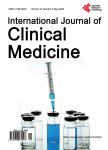Factors Associated with Late Diagnosis of Oral Cancer
Factors Associated with Late Diagnosis of Oral Cancer作者机构:Postgraduate Program in Dentistry (Collective Health) Faculdade de Odontologia de Pernambuco Universidade de Pernambuco Recife Brazil Faculdade de Odontologia do Recife Recife Brazil Epidemiology and Public Health University of London London UK Department of General and Preventive Dentistry Universidade Federal de Pernambuco Recife Brazil
出 版 物:《International Journal of Clinical Medicine》 (临床医学国际期刊(英文))
年 卷 期:2015年第6卷第2期
页 面:105-111页
学科分类:1002[医学-临床医学] 100214[医学-肿瘤学] 10[医学]
主 题:Oral Cancer Late Diagnosis Clinical Stage
摘 要:Objective: The aim of the present study was to determine associations between the late diagnosis of oral cancer and demographic/clinical factors. A quantitative cross-sectional study was carried out in 2007. Material and Method: Oral tumors were recorded based on the TNM staging system, with T1 and T2 considered early diagnosis and T3 and T4 considered late diagnosis. Results: Patient age ranged from 30 to 105 years (mean: 64.7). Just over half of the patients (54.9%) resided in urban areas and approximately 1/4 (25.7%) had an agricultural occupation. The majority had smoking habits (89.9%) and consumed alcohol (62.5%). The most frequent tumor site was the tongue (42.4%), followed by the hard palate (19.2%) and lip (12.2%). The majority (70.1%) were in advanced stages (III and IV). A greater percentage of smokers were in advanced stages than non-smokers. The percentage of cases in the early stages was lowest when the tumor was located in the tongue (14.1%) and highest when located in the buccal mucosa (80.0%). Conclusion: The main causes of the late diagnosis of oral cancer are insufficient training on the part of physicians and dentists in the field of pathology, delays on the part of patients in seeking medical assistance and deficient access to quality medical care, reflecting the absence of preventive public health programs and an effective healthcare system.



